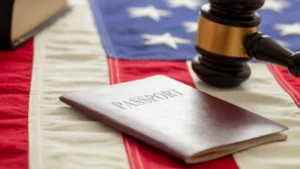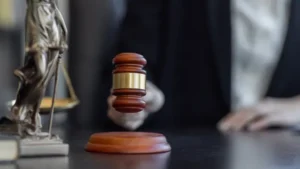

The Weight of False Allegations
Imagine waking up one morning to find your world turned upside down. A friend, colleague, or even a loved one has accused you of something you didn’t do. The weight of false allegations can feel unbearable, threatening your reputation, career, relationships, and even your freedom. Understanding how to navigate such accusations is crucial to protecting your rights and clearing your name.
False accusations occur more often than people think. Studies suggest that wrongful accusations, particularly in domestic violence and sexual assault cases, make up a small but significant percentage of reported crimes. While justice systems strive to uphold fairness, the stigma associated with accusations can lead to severe consequences before a verdict is even reached.
Understanding False Allegations
A false allegation refers to an untrue claim made against someone, often with the intent to mislead authorities, gain leverage in legal disputes, or damage another person’s reputation. These accusations can arise in various scenarios, including:
- Family disputes – Allegations of abuse in divorce or custody battles.
- Workplace conflicts – Claims of harassment or misconduct.
- Criminal investigations – Accusations of theft, assault, or fraud.
Regardless of the circumstances, being falsely accused places the burden of proving one’s innocence squarely on the accused. The justice system operates on the principle of “innocent until proven guilty,” but public perception often works the other way around.
Defense Strategies: How to Protect Yourself
When facing false allegations, having a structured plan can be the difference between conviction and clearing your name. Below are critical defense strategies that legal professionals use to challenge wrongful claims.
1. Gathering Evidence Immediately
Time is of the essence. The sooner you start collecting evidence, the better your defense will be. Text messages, emails, security footage, and witness testimonies can all serve as valuable proof that contradicts the accusation. For example, if someone falsely claims you were at a certain place at a certain time, GPS data or surveillance footage could establish your whereabouts and disprove the claim.
2. Hiring an Experienced Defense Attorney
Facing false allegations without legal representation is like walking into a battlefield unarmed. A skilled criminal defense attorney will analyze the case, gather supporting evidence, and challenge inconsistencies in the accuser’s statement. Their expertise in courtroom procedures and cross-examinations can weaken the prosecution’s case and expose the truth.
3. Challenging the Accuser’s Credibility
In many false accusation cases, inconsistencies in the accuser’s story can be a red flag. If the accuser has a history of making similar claims or has motives such as revenge, financial gain, or child custody disputes, these factors must be brought to light. Attorneys often investigate records, social media activity, and prior legal disputes to uncover any patterns of deceit.
4. Establishing an Alibi
If you can prove you were elsewhere when the alleged incident took place, it can serve as a strong defense. Alibi witnesses, work logs, or electronic records (such as phone calls or credit card transactions) can help verify your location at the time of the accusation.
5. Using Polygraph Tests and Expert Witnesses
While polygraph tests are not always admissible in court, they can be useful tools in pre-trial negotiations or internal investigations. Additionally, expert witnesses, such as forensic analysts, medical professionals, or psychologists, can provide insights that contradict the accuser’s claims.
6. Exposing Bias or Hidden Motives
Many false allegations stem from ulterior motives. If an accuser stands to benefit financially, legally, or personally from the accusation, highlighting these motivations can help dismantle their credibility.
Sentencing Factors in False Accusation Cases
The consequences of a conviction based on false allegations can be severe. Sentencing depends on multiple factors, including:
- Nature of the accusation – Charges related to sexual assault, domestic violence, or fraud can carry different penalties.
- Prior criminal history – If the accused has previous offenses, sentencing may be more severe.
- Strength of evidence – Weak or circumstantial evidence can increase the chances of a wrongful conviction.
- Impact on the victim (real or perceived) – The court considers how the alleged crime affected the accuser.
In cases where someone is falsely accused and convicted, appeals and post-conviction relief may be available, but the road to justice can be long and challenging.
Case Study: A Step-by-Step Legal Analysis
Case: David, a high school teacher, was accused by a student of inappropriate conduct. Despite the lack of evidence, he was suspended from his job, and his reputation was tarnished.
Step 1: Initial Accusation and Arrest
David was placed on administrative leave and faced immediate social and professional consequences. Law enforcement initiated an investigation based on the student’s claims.
Step 2: Legal Representation and Evidence Gathering
David’s attorney collected school security footage, student testimonies, and communication records that contradicted the accuser’s story. One student revealed that the accuser had previously fabricated similar stories.
Step 3: Court Proceedings and Cross-Examination
During the trial, inconsistencies in the accuser’s statements were exposed. The defense presented a timeline proving David was in a different classroom at the time of the alleged incident.
Step 4: Verdict and Acquittal
The jury found David not guilty due to overwhelming evidence in his favor. Although he was cleared legally, the damage to his reputation lingered, highlighting the lasting impact of false allegations.
Conclusion
This guide provides a deep dive into defending against false allegations, equipping readers with knowledge and strategies to navigate such challenges effectively.
Frequently Asked Questions (FAQs)
- Can I sue someone for making false allegations against me? Yes. If the false accusation caused harm, such as loss of employment or emotional distress, you may have grounds for a defamation lawsuit.
- What should I do immediately after being falsely accused? Remain calm, avoid confrontation with the accuser, and consult an attorney as soon as possible. Do not discuss the case on social media.
- How can I clear my name if I was falsely accused? Gather evidence, hire an attorney, and, if necessary, take legal action for defamation or false reporting.
- Do false allegations happen frequently? While most accusations are truthful, false allegations do occur, especially in legal disputes related to custody, employment, or revenge scenarios.
- What are the long-term effects of being falsely accused? Even after being cleared, false accusations can impact personal relationships, career opportunities, and mental well-being. Seeking professional support and legal action may help restore reputation.



